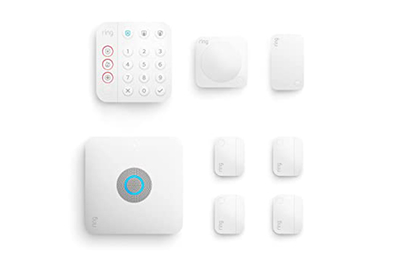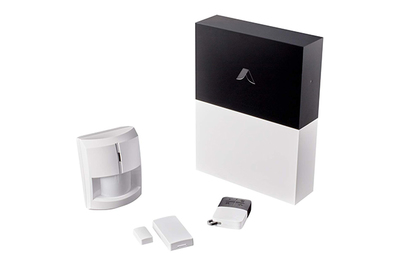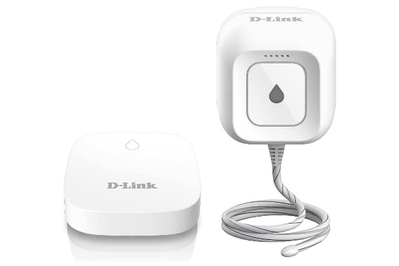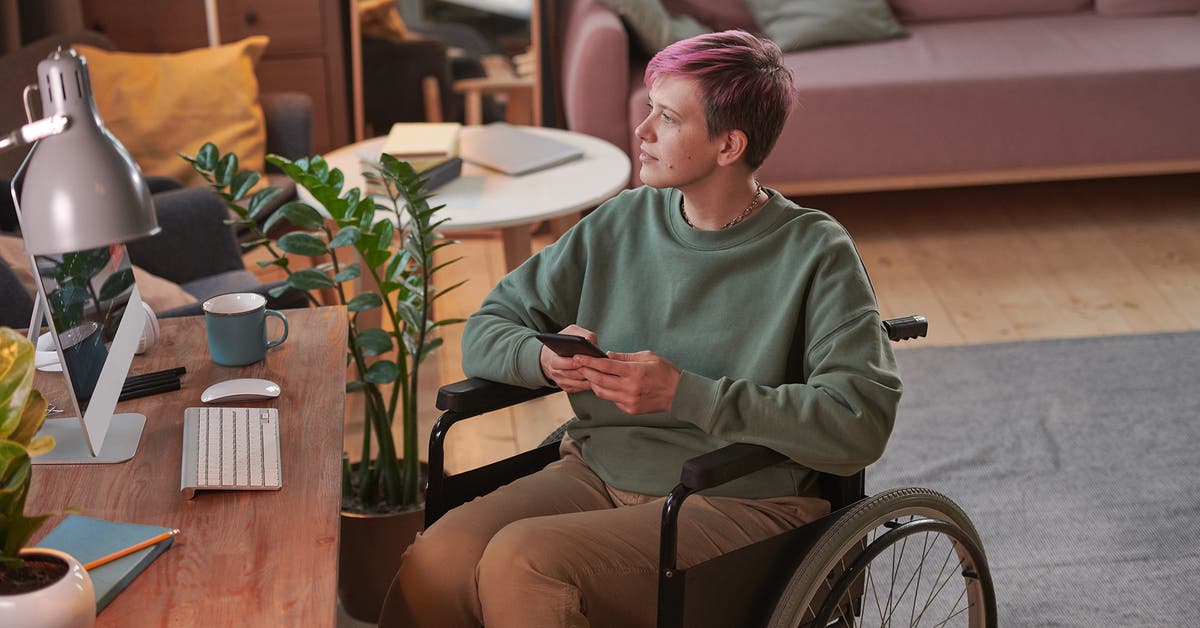Compatibility: Amazon Alexa, Apple HomeKit (with compatible base station), Google Home, IFTTT, Samsung SmartThings
Pros: Having a strong view of your surroundings and being able to share it with caregivers and loved ones can give you great peace of mind. The Arlo Pro 4 Spotlight camera can accurately determine whether the movement is a person, animal, car, or package. Arlo also has a 24/7 recording option, so you can have a complete record of who is in your home at any time (this requires a more expensive subscription and additional equipment to enable).
Why we recommend it: The Arlo Pro 4 Wi-Fi camera can record crisp 2K video and up to five minutes of continuous motion. Currently, the camera is only sold in a multi-pack, which is more expensive and requires a more expensive Arlo Secure subscription as a result. For $13 per month, you get unlimited camera support, the ability to record clips, and the camera’s ability to identify people, pets, packages, and vehicles. It runs on a rechargeable battery, but if you live in a high-traffic area, you may need to charge it monthly. If so, consider buying extra batteries, a solar panel, or wiring the camera with an outdoor cable.
Home Security Systems
 Photo: Michael Murtaugh
Photo: Michael Murtaugh
Home security systems help prevent break-ins, but they also include sensors to let you know if doors or windows are left open, cameras to let you know when the caretaker is coming or going, and smoke detectors to alert you if there’s a fire (or an egg burning in the frying pan.) Some systems also offer other useful add-ons, like water sensors, keypads or key fobs, glass break sensors, and panic buttons, all of which can be accessed from a single app (no need to juggle multiple apps).
We highly recommend adding a professional monitoring plan to your security system so that in the event of an alarm, call center personnel can alert you, your loved ones, and potential emergency contacts. The call center can also contact the police or fire department if necessary, or if no one can be reached.
Our Recommendations
The system works with almost any type of security accessory, offers power and internet backup options, and has a built-in Wi-Fi 6 router.
Compatibility: Works with Amazon Alexa, Ring
Pros: The Ring Alarm Pro comes with a built-in Eero Wi-Fi 6 router to boost the speed and range of your home internet network, and the Ring system’s base has a battery that provides 24 hours of backup power (you can boost that by using an additional power pack for another 24 hours).
Why we recommend it: Ring’s sensors perform well, the company offers the most variety of indoor and outdoor camera add-ons of any system we’ve tested, and it’s the best value for your money when it comes to professional monitoring ($20 per month or $200 per year).
Your monthly monitoring subscription includes internet backup, so if there’s a power outage or your home internet service goes down, you can continue to access it via your cellular connection. This keeps your system online and your security cameras functioning, and also gives you internet access for email, Netflix, and other services (up to 3GB, $3 per GB above that).
wonderful
Abode has a wide range of useful accessories and is also compatible with a variety of third-party devices and all major smart home platforms.
Compatible devices: Amazon Alexa, Apple Home, Google Home, etc.
Pros: The Abode Smart Security Kit requires a bit more technical knowledge and an Abode subscription plan (starting at $7 per month or $70 per year), but this DIY system is compatible with many more smart home devices than other systems.
Why we recommend it: The Abode Smart Security Kit works with smart lighting, thermostats, voice control, and just about every other kind of smart home device. Abode also offers a number of add-ons, including several types of sensors, cameras, and a smoke detector monitor that works with your existing UL-certified smoke detector.
Smart Water Leak Detector
 Photo: Michael Murtaugh
Photo: Michael Murtaugh
According to the Insurance Information Institute, about 1 in 50 U.S. households file insurance claims related to water damage each year. These accidents often occur in hard-to-reach places like basements, near the water heater, or behind the washing machine. Smart leak sensors can send an alert to your smartphone as soon as water is detected, and some sensors can also sound an alarm or activate a light or sound so you can address even small leaks before they become bigger problems.
Our Recommendations
The plug-in hub comes with a loud (94 dB) siren and optional sensor cable for connecting up to 16 battery-powered remote sensors.
Compatible with: Google Home, IFTTT
Pros: A good leak sensor will let you know when a leak has been detected, even if you’re not at home or nearby. The best models have a loud alarm and the ability to integrate with smart home platforms to receive smart alerts. Plus, being able to silence alerts through the app means you don’t have to physically access the detector (or wade through the water) to silence the alarm.
Why we recommend it: With a 94 dB alarm built into the plug-in hub, the D-Link DCH-S1621KT is the loudest of our picks. The hub comes with an optional sensor cable that detects water around the hub, but the system can also monitor up to 16 other locations with additional battery-powered sensors.
If water is present, the alarm and smartphone alert can be silenced in the app but can’t be turned off, meaning the alert will continue to sound if water is still present. If that bothers you, opt for the Flo by Moen Smart Water Leak Detector, which can be turned off on the device or in the app. It can also detect temperature, but it doesn’t have a loud audible alarm and isn’t integrated with any smart home platforms.

